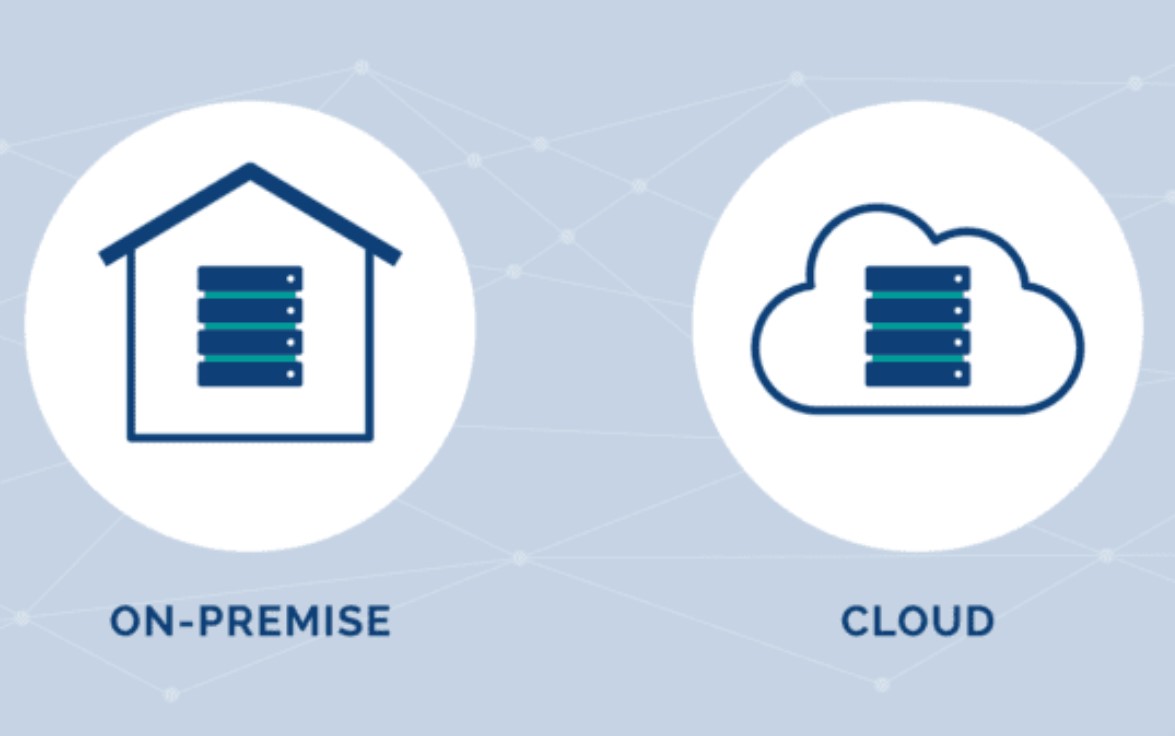
Choosing the right Hosting Provider is crucial for the success of your blog. The right host can enhance your site’s speed, reliability, and security, contributing to a better user experience and higher search engine rankings.
This guide will help you understand the key factors to consider when selecting a hosting provider, the benefits of different hosting options, and provide detailed comparisons of top hosting solutions.
Key Factors to Consider When Choosing a Hosting Provider

Choosing the right hosting provider is a crucial decision that can significantly impact your blog’s performance, reliability, and overall success. Here are the key factors to consider when selecting a hosting provider:
Performance and Uptime
Speed and Reliability: A fast-loading website is essential for a positive user experience and better search engine rankings. Look for hosting providers that guarantee high performance and at least 99.9% uptime. Reliable uptime ensures that your blog is accessible to visitors at all times without unexpected downtimes.
Server Location: The physical location of the hosting provider’s data centers can affect your website’s load times. Choose a provider with data centers close to your target audience to minimize latency and improve site speed.
Security Features
SSL Certificates: Secure Sockets Layer (SSL) certificates encrypt the data exchanged between your website and its visitors, enhancing security and building trust. Ensure that your hosting provider offers free SSL certificates to protect your blog and its users.
Backup Solutions: Regular backups are crucial for data protection. Select a hosting provider that offers automated backups and easy restoration options. This ensures that you can quickly recover your blog in case of data loss or cyberattacks.
Advanced Security Measures: Look for providers that offer advanced security features such as DDoS protection, firewalls, and malware scanning. These measures help safeguard your blog from malicious threats and vulnerabilities.
Customer Support
24/7 Availability: Reliable customer support is vital for resolving issues promptly. Opt for hosting providers that offer 24/7 support through multiple channels, including live chat, email, and phone. This ensures that you can get help whenever you need it.
Knowledge Base: A comprehensive knowledge base with tutorials, FAQs, and guides can be incredibly helpful for troubleshooting common issues. Check if the hosting provider offers a well-maintained knowledge base to assist you in managing your blog.
Scalability
Resource Upgrades: As your blog grows, you may need additional resources such as CPU, RAM, and storage. Choose a hosting provider that offers easy scalability, allowing you to upgrade resources without experiencing downtime or performance issues.
Flexible Plans: Look for hosting providers with flexible plans that can be upgraded or downgraded based on your needs. This flexibility ensures that you only pay for the resources you need at any given time.
Cost and Value
Transparent Pricing: Ensure the pricing structure is clear and transparent, with no hidden fees. Compare the costs and features of different hosting plans to find the best value for your money.
Money-Back Guarantee: A money-back guarantee allows you to test the hosting service risk-free. Check the provider’s refund policy to ensure that you can get your money back if you’re not satisfied with the service.
Benefits of Choosing the Right Hosting Provider

Selecting the right hosting provider for your blog or website is a critical decision that can significantly impact your site’s performance, security, and overall success. Here are some key benefits of choosing the right hosting provider:
1. Enhanced Website Performance
Speed and Uptime: A reliable hosting provider ensures fast load times and high uptime. Websites that load quickly provide a better user experience, which can lead to higher visitor engagement and lower bounce rates. High uptime ensures that your site is accessible to users around the clock, preventing potential revenue loss due to downtime.
Optimized Resources: Top hosting providers offer optimized server resources, such as SSD storage and content delivery networks (CDNs), to enhance website performance. These features contribute to faster data retrieval and reduced latency, especially for visitors from different geographical locations.
2. Improved Security
SSL Certificates: Security is a major concern for any website owner. A reputable hosting provider typically includes free SSL certificates, which encrypt data transferred between your site and its visitors, protecting sensitive information and boosting trust.
Regular Backups: Regular backups are crucial for data protection. The right hosting provider offers automated backup solutions, ensuring that your website’s data is regularly saved and can be quickly restored in case of data loss or cyberattacks.
Advanced Security Features: Leading hosting providers implement advanced security measures such as firewalls, malware scanning, and DDoS protection to safeguard your website from various threats.
3. Scalability
Resource Flexibility: As your blog or website grows, you will need more resources to handle increased traffic and content. A good hosting provider offers scalable plans that allow you to easily upgrade your CPU, RAM, and storage without experiencing downtime or performance issues.
Flexible Pricing Plans: The right hosting provider offers various pricing plans that cater to different needs, from small blogs to large e-commerce sites. This flexibility ensures that you can choose a plan that fits your budget and can scale up as your website expands.
4. Reliable Customer Support
24/7 Support: Technical issues can arise at any time, and having access to reliable customer support is essential. Top hosting providers offer 24/7 support through various channels, such as live chat, email, and phone, ensuring that any issues are promptly resolved.
Comprehensive Knowledge Base: A comprehensive knowledge base with tutorials, guides, and FAQs can be invaluable for troubleshooting common issues and learning how to optimize your website’s performance.
5. Cost Efficiency
Affordable Pricing: While the cost of hosting is an important factor, the cheapest option isn’t always the best. The right hosting provider offers a balance between cost and features, providing good value for money.
Money-Back Guarantee: Many reputable hosting providers offer a money-back guarantee, allowing you to test their services risk-free. If you’re not satisfied, you can get a refund within a specified period.
Top Hosting Providers for Blogs
1. Bluehost
Website: Bluehost
Features:
- Free domain name for the first year
- Free SSL certificate
- 24/7 customer support
- Easy WordPress installation
Pros:
- User-friendly interface
- Excellent uptime
- Affordable pricing
Cons:
- Higher renewal rates
- Limited storage on basic plans
Price: Starting at $2.95/month
2. SiteGround
Website: SiteGround
Features:
- Free daily backups
- Free SSL certificate
- 24/7 customer support
- Optimized for WordPress
Pros:
- Excellent performance and speed
- Robust security features
- Top-notch customer support
Cons:
- Higher pricing compared to competitors
- Limited storage space
Price: Starting at $6.99/month
3. A2 Hosting
Website: A2 Hosting
Features:
- Turbo Servers for 20x faster speed
- Free site migration
- SSD storage
- Anytime money-back guarantee
Pros:
- High-speed performance
- Developer-friendly tools
- Great customer support
Cons:
- Higher price for Turbo plans
- Limited basic plan features
Price: Starting at $2.99/month
4. InMotion Hosting
Website: InMotion Hosting
Features:
- Free domain and SSL
- SSD storage
- 24/7 customer support
- Free data backups
Pros:
- High uptime reliability
- Excellent customer support
- Scalable hosting solutions
Cons:
- Slightly higher starting price
- Complex for beginners
Price: Starting at $5.99/month
5. HostGator
Website: HostGator
Features:
- Unmetered bandwidth
- Free site migration
- Free SSL certificate
- 24/7 customer support
Pros:
- Affordable pricing
- Flexible hosting options
- Good uptime and performance
Cons:
- Occasional slow support
- Add-on costs
Price: Starting at $2.75/month
Comparison Table of Hosting Providers
| Provider | Use Case | Pros | Cons | Price | Features |
|---|---|---|---|---|---|
| Bluehost | Beginner-friendly | User-friendly, affordable | Higher renewal rates | $2.95/month | Free domain, SSL, 24/7 support, easy WP setup |
| SiteGround | Performance-focused | Excellent speed, robust security | Higher pricing | $6.99/month | Free daily backups, SSL, optimized for WordPress |
| A2 Hosting | High performance | High-speed, developer-friendly | Expensive Turbo plans | $2.99/month | Turbo Servers, site migration, SSD storage |
| InMotion | Business websites | High uptime, excellent support | Slightly higher starting | $5.99/month | Free domain, SSL, SSD storage, data backups |
| HostGator | Budget-friendly | Affordable, flexible | Occasional slow support | $2.75/month | Unmetered bandwidth, site migration, SSL |
Benefits of Specific Hosting Providers
Bluehost
Beginner-Friendly: Bluehost’s user-friendly interface and one-click WordPress installation make it ideal for beginners. The free domain for the first year and affordable pricing add great value.
Reliable Performance: With excellent uptime and reliable performance, Bluehost ensures your blog remains accessible to visitors.
SiteGround
Performance and Security: SiteGround offers top-notch performance and speed, along with robust security features such as daily backups and free SSL certificates, making it a great choice for performance-focused bloggers.
Customer Support: SiteGround’s 24/7 customer support is highly rated, providing quick and helpful assistance for any issues.
A2 Hosting
High-Speed Performance: A2 Hosting’s Turbo Servers offer up to 20x faster speed, making it perfect for bloggers who prioritize site performance.
Developer-Friendly: With a variety of developer tools and software options, A2 Hosting is a great choice for tech-savvy bloggers and developers.
InMotion Hosting
Reliable Uptime: InMotion Hosting is known for its high uptime reliability, ensuring your blog remains accessible at all times.
Excellent Support: With 24/7 customer support and free data backups, InMotion provides a reliable and secure hosting environment for your blog.
HostGator
Affordable Pricing: HostGator’s affordable pricing and flexible hosting options make it an excellent choice for budget-conscious bloggers.
Good Performance: Despite its low cost, HostGator offers good uptime and performance, along with free site migration and SSL certificates.
How to Choose the Perfect Hosting Provider
Choosing the perfect hosting provider involves several steps:
- Identify Your Needs:
- Determine the specific needs of your blog, such as expected traffic, required storage, and desired features.
- Research Providers:
- Compare different hosting providers based on performance, security, customer support, scalability, and pricing.
- Read Reviews:
- Check customer reviews and expert opinions to understand the pros and cons of each provider.
- Test Support:
- Contact the customer support of shortlisted providers to gauge their responsiveness and helpfulness.
- Evaluate Plans:
- Compare the features and prices of various plans offered by each provider to find the best fit for your budget and requirements.
- Check Guarantees:
- Look for money-back guarantees and trial periods to test the service risk-free.
How to Buy Hosting for Your Blog
Purchasing hosting for your blog is straightforward. Follow these steps:
- Visit the Provider’s Website:
- Bluehost
- SiteGround
- A2 Hosting
- InMotion Hosting
- HostGator
- Choose a Plan:
- Compare the features and prices of different plans. Select a plan that suits your needs and budget.
- Sign Up:
- Create an account on the provider’s website. Provide the necessary details and complete the registration process.
- Make Payment:
- Enter your payment information. Complete the purchase and activate your hosting plan.
- Set Up Your Blog:
- Follow the provider’s setup instructions to configure your hosting environment. Install WordPress or your preferred blogging platform and start customizing your blog.
Example Links for Easy Access:
- Sign Up for Bluehost
- Sign Up for SiteGround
- Sign Up for A2 Hosting
- Sign Up for InMotion Hosting
- Sign Up for HostGator
Use Cases and Solutions
New Bloggers
Problem: New bloggers need a user-friendly and affordable hosting solution to start their blog.
Solution: Bluehost offers an easy-to-use interface, one-click WordPress installation, and affordable pricing, making it ideal for beginners.
Performance-Focused Blogs
Problem: Performance-focused blogs require high-speed hosting and robust security features to ensure fast load times and data protection.
Solution: SiteGround provides excellent performance and speed, along with robust security features like daily backups and free SSL certificates.
Tech-Savvy Bloggers
Problem: Tech-savvy bloggers need developer-friendly tools and high-speed performance for their blogs.
Solution: A2 Hosting offers Turbo Servers for faster speed and a variety of developer tools, making it a great choice for tech-savvy bloggers.
FAQs
1. What is web hosting and why do I need it for my blog?
Answer: Web hosting is a service that allows you to publish your website or blog on the internet. It provides the necessary resources and infrastructure to store your website’s files and make them accessible to visitors online.
2. What are the key factors to consider when choosing a hosting provider?
Answer: Key factors to consider include performance and uptime, security features, customer support, scalability, and cost. Evaluate these factors based on your blog’s specific needs.
3. How does the location of a hosting provider’s data center affect my blog?
Answer: The location of the data center affects the load times of your blog. Choosing a hosting provider with data centers close to your target audience reduces latency and improves load times.
4. Can I switch hosting providers if I’m not satisfied with my current one?
Answer: Yes, most hosting providers offer migration services to help you transfer your website to a new host. Check for any potential fees and downtime during the migration process.
5. What is a money-back guarantee in web hosting?
Answer: A money-back guarantee allows you to try the hosting service risk-free. If you’re not satisfied within a specified period, you can request a refund. Check the provider’s refund policy for details.





